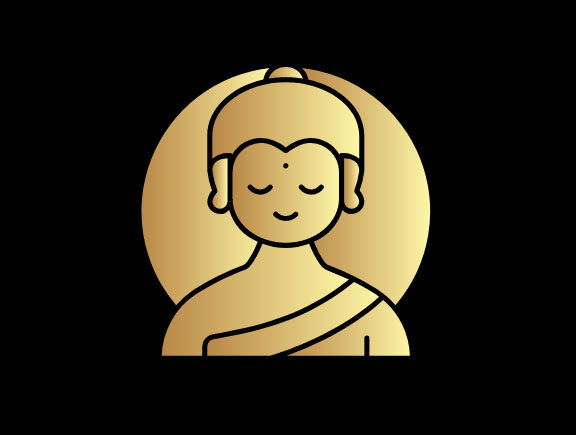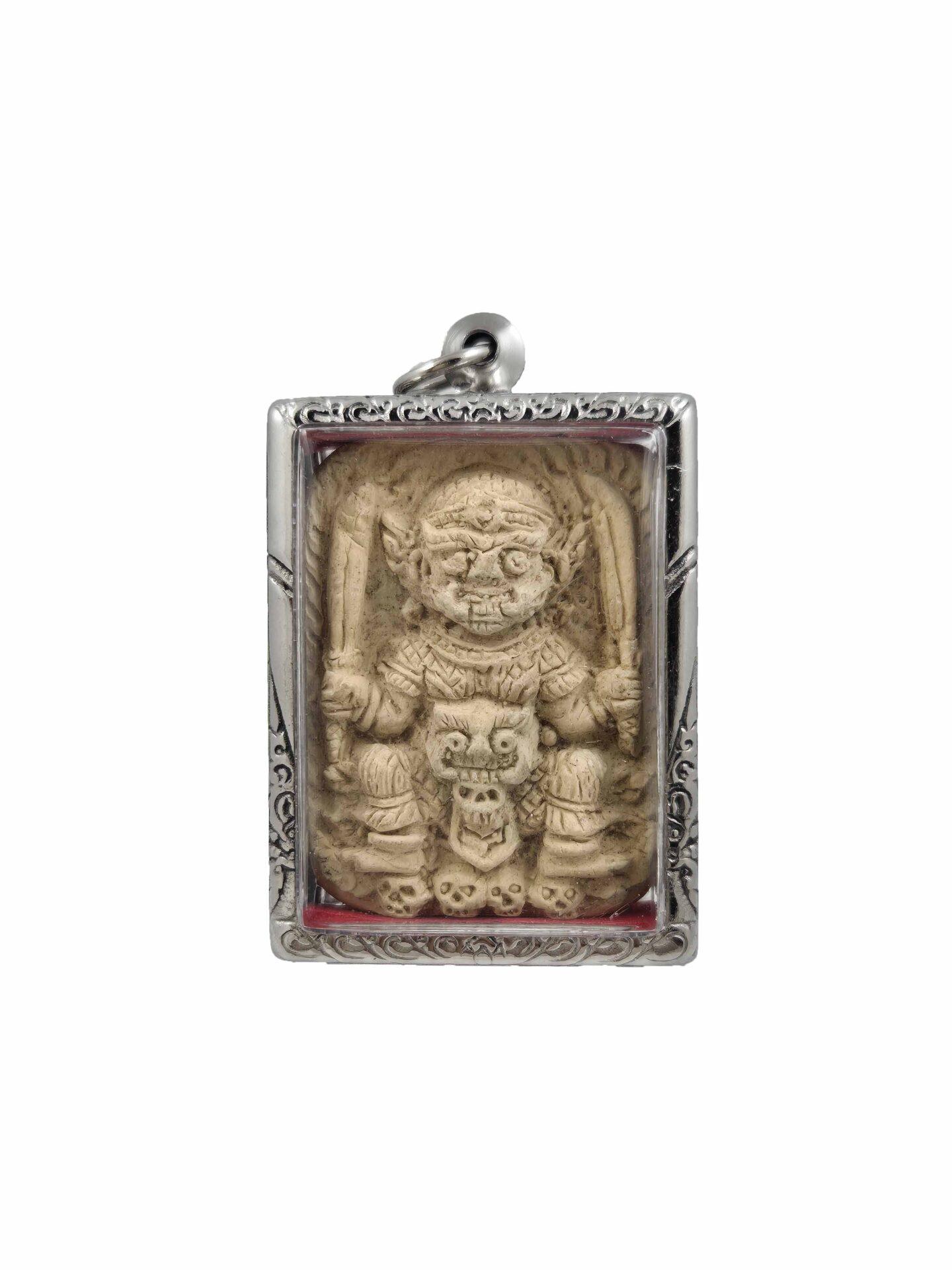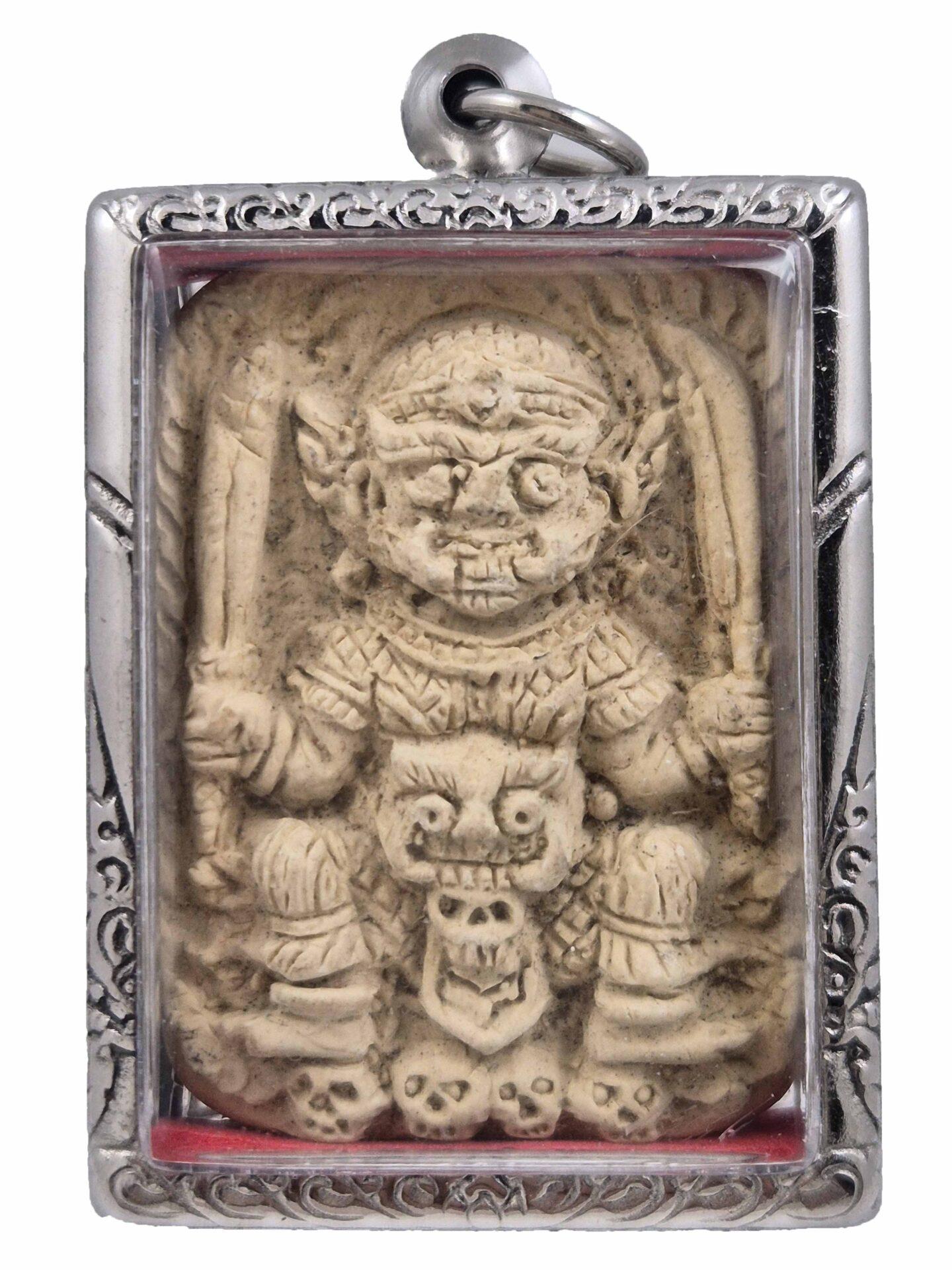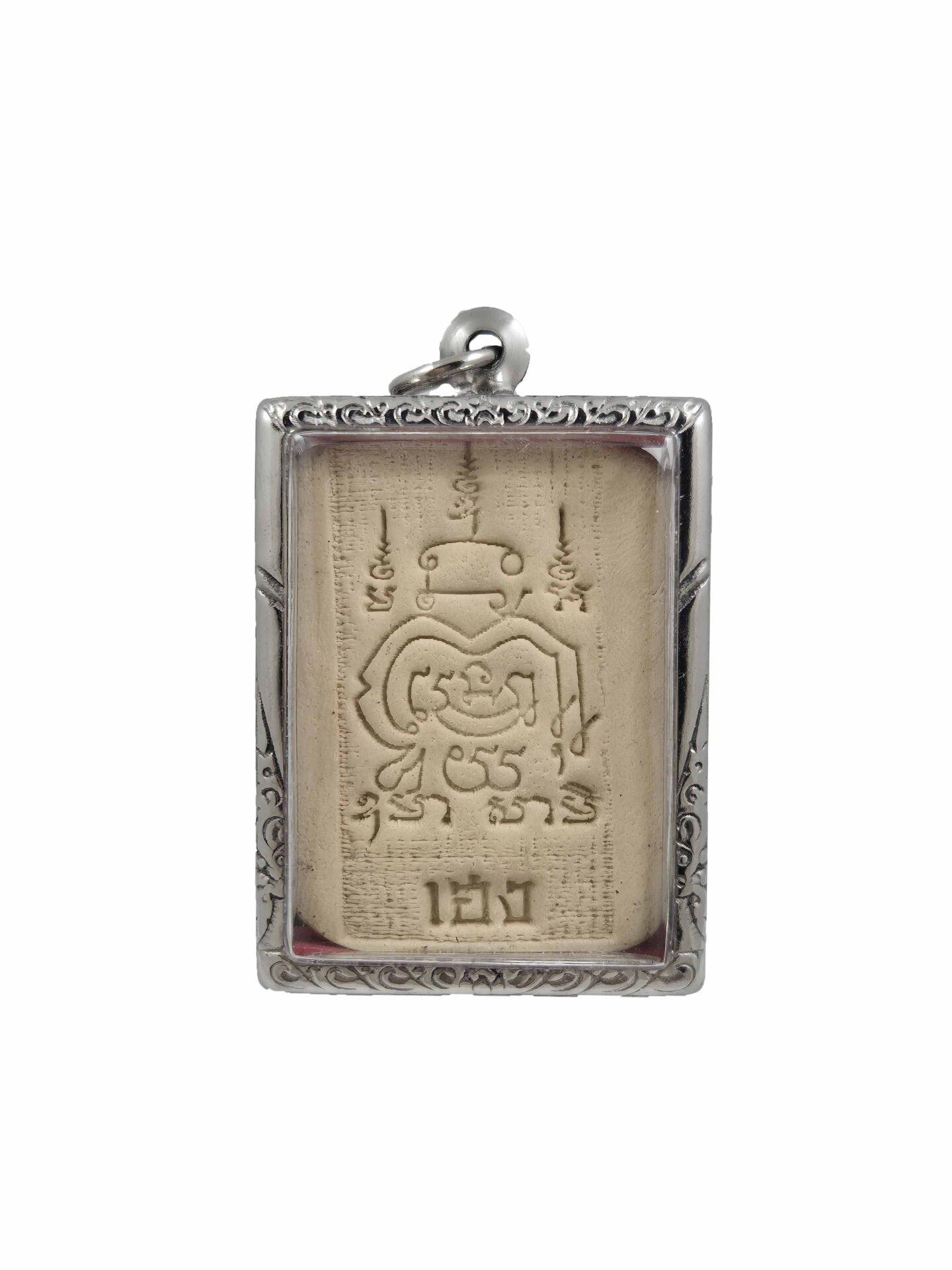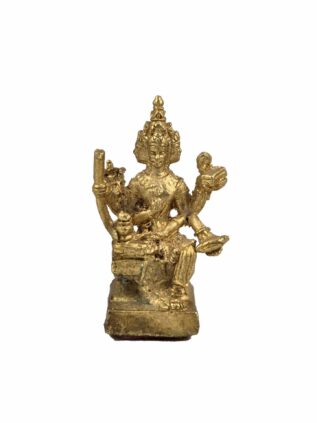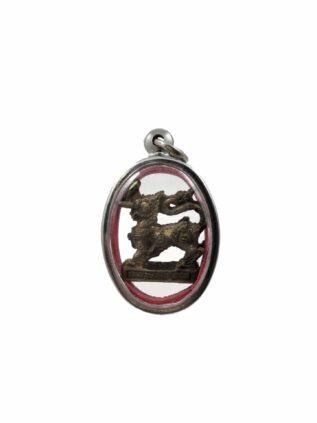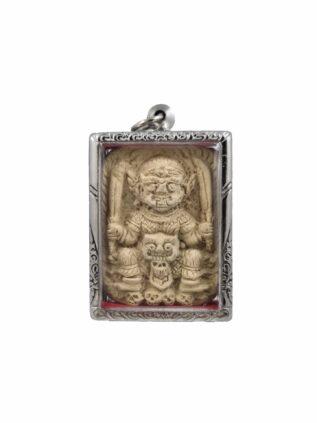Description
Phaya Purisat is a mythical figure in Thai and Southeast Asian folklore, known for his fearsome appearance and immense power. His name translates to “Lord of the Purisat,” with “Purisat” often interpreted as a term for mythical beings or ogres in Buddhist and local traditions. He is a figure of strength and intimidation, often depicted as a test of moral fortitude and courage.
In Buddhist lore, Phaya Purisat is sometimes portrayed as a demon who challenges the virtues of individuals. This aligns with his symbolic role as a representation of inner struggles, obstacles, or adversaries that one must overcome. His fierce and imposing nature emphasizes the need for self-discipline, resilience, and moral strength to navigate life’s challenges.
Phaya Purisat is typically described as a giant with a terrifying appearance, embodying the qualities of a powerful guardian or challenger. While he is often feared, his role in myths may also highlight the possibility of transformation, where facing and overcoming him symbolizes personal growth and enlightenment.
In some interpretations, Phaya Purisat is associated with Thao Wessuwan, the guardian of the northern direction and a celestial protector in Buddhist cosmology. This connection arises from the shared traits of power and protection against evil. Some modern narratives even describe Phaya Purisat as a hidden or wrathful form of Thao Wessuwan, though this is more a product of evolving beliefs than traditional teachings.
Phaya Purisat is less commonly worshipped compared to deities like Thao Wessuwan, but his story serves as a reminder of the importance of courage and virtue in overcoming challenges. His legacy remains an intriguing part of Southeast Asian spiritual and cultural traditions, blending myth, morality, and mysticism into a compelling narrative.
